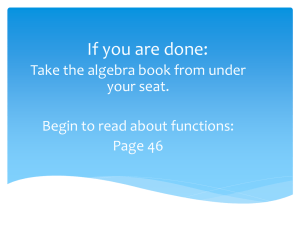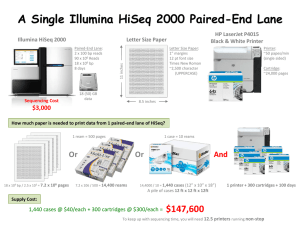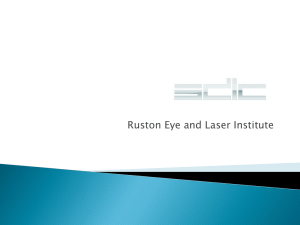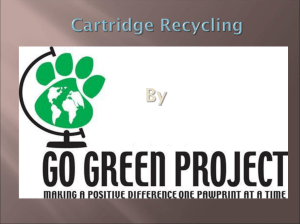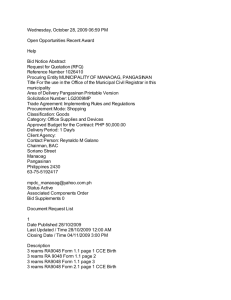The owner of the local copy-shop is soliciting your help... you learned in Stat 330 to answer the following questions.
advertisement
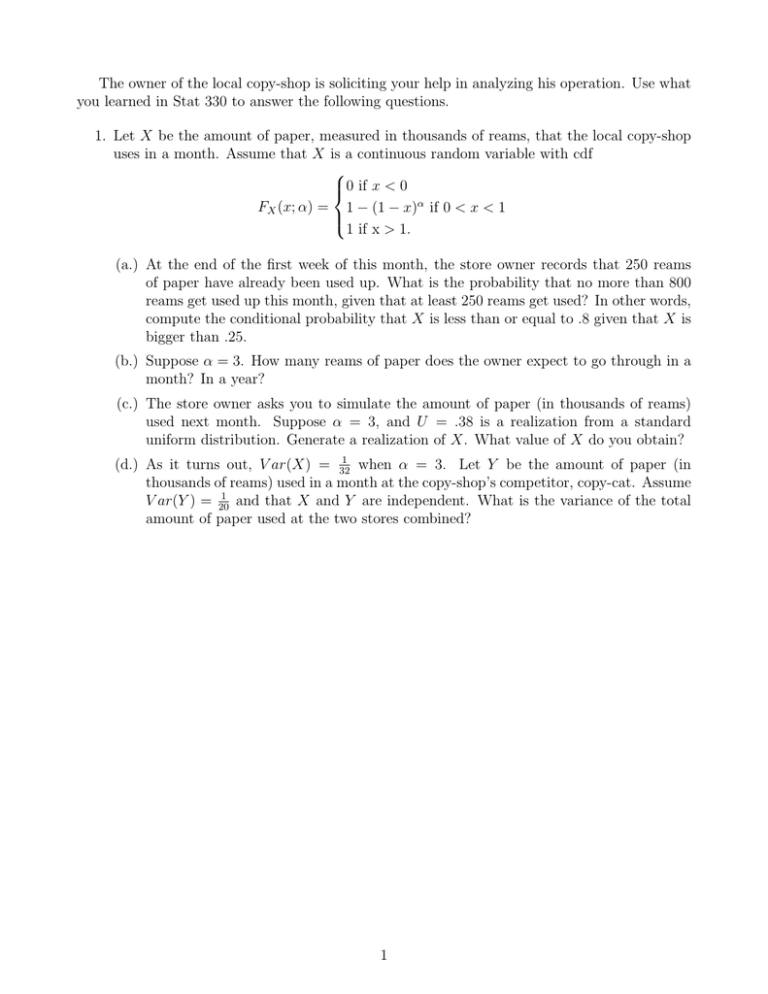
The owner of the local copy-shop is soliciting your help in analyzing his operation. Use what you learned in Stat 330 to answer the following questions. 1. Let X be the amount of paper, measured in thousands of reams, that the local copy-shop uses in a month. Assume that X is a continuous random variable with cdf 0 if x < 0 FX (x; α) = 1 − (1 − x)α if 0 < x < 1 1 if x > 1. (a.) At the end of the first week of this month, the store owner records that 250 reams of paper have already been used up. What is the probability that no more than 800 reams get used up this month, given that at least 250 reams get used? In other words, compute the conditional probability that X is less than or equal to .8 given that X is bigger than .25. (b.) Suppose α = 3. How many reams of paper does the owner expect to go through in a month? In a year? (c.) The store owner asks you to simulate the amount of paper (in thousands of reams) used next month. Suppose α = 3, and U = .38 is a realization from a standard uniform distribution. Generate a realization of X. What value of X do you obtain? 1 when α = 3. Let Y be the amount of paper (in (d.) As it turns out, V ar(X) = 32 thousands of reams) used in a month at the copy-shop’s competitor, copy-cat. Assume 1 V ar(Y ) = 20 and that X and Y are independent. What is the variance of the total amount of paper used at the two stores combined? 1 2. The copy-shop needs to downsize. After downsizing, the copy-shop will have enough space for two copy machines and one customer waiting in line. (Assume customers depart as soon as they are done making copies and that any potential customer who arrives when the store is full is lost). Customers arrive at a rate of 6 per hour. It takes 20 minutes, on average, for either copy machine to complete a job. (a.) Draw a state diagram to represent the system. Indicate all possible states along with the corresponding birth and death rates. (b.) Let X be the (large t) number of customers in the copy-shop. Write down the PMF and CDF of X. (c.) What is the expected (large t) number of customers in the store? How long do we expect a customer to spend in the store? 3. Sadly, 5% of all of the ink cartridges that copy-shop receives are empty! (a.) The store owner has tested 3 ink cartridges and none of them have been empty so far. (phew!) How many additional ink cartridges does the store owner expect to have to test until he find s the first empty cartridge? (b.) Approximate the probability that fewer than 10 cartridges in the next shipment of 200 are empty. (c.) The cartridges come from 2 suppliers. 70% come from suppler A, and 2% of the cartridges from supplier A are empty. Given that a cartridge from supplier A is empty, what is the conditional probability that the cartridge is from supplier A? 2
